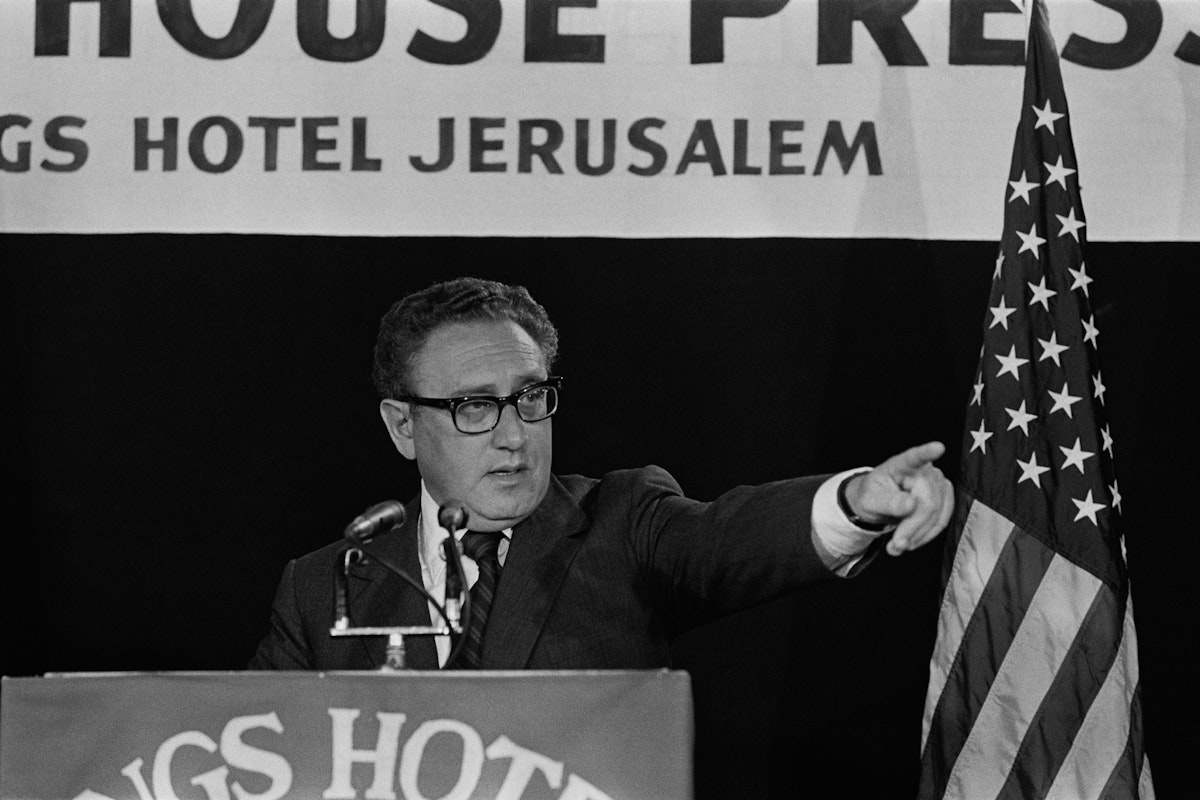
The former group spanned the political spectrum, from the democratic socialists Irving Howe and Michael Walzer to neoconservatives such as Seymour Martin Lipset and Norman Podhoretz. There was no room for disagreement between the two poles, however, because the only issue discussed was Israel’s security and how to best ensure it. Kissinger posed as Israel’s savior and warned of a noticeable turn against all-out support for Israel in Congress. (Actually, the opposite was true. Congress was far more pro-Israel than Kissinger was.) He pointed out that, given the “critical opposition” to Israel within the international community, the perfidy of the “European vultures,” and the likely success of the “extremely effective” OPEC oil embargo, which would give the Arab world more leverage over the West and turn consumers in both the U.S. and Europe against Israel. Israel was “in great danger.” What he needed, he explained, was for influential American Jews to “privately… make clear to the Israelis that you understand the situation.” The meeting broke up, according to the notes taken by an aide to Kissinger, “with warm expressions of gratitude.”
To the leaders of Jewish organizations, Kissinger went further. He complained that he could not serve Israel’s interests—and prevent another attack—“if the Jewish community starts climbing walls every time I am seen smiling with Sadat.” He was rewarded with a pledge from Max Fisher, a Republican funder, that Jews got the message: “The Jewish community is becoming conscious of the need for a strong defense posture.” When one participant did try to raise the question, asking, “Is peace possible with the Palestinians?” Kissinger replied, “The Palestinians have to get a little hungrier.”
As Israel continued to resist his plans for disengagement in the Sinai and the Golan Heights, Kissinger convinced now-President Gerald Ford in March 1975 to order a “reassessment” of U.S. foreign policy in the region, which included a deliberate slowdown and deferral of arms deliveries pending its outcome. He announced that “every department is to be instructed to end the special relationships [with Israel].” Acting as much on the basis of paranoia and pique as on principle or policy, he accused American Jews of “conducting a systematic campaign” to undermine his authority and added to Ford, “I think the Israelis are after me.”